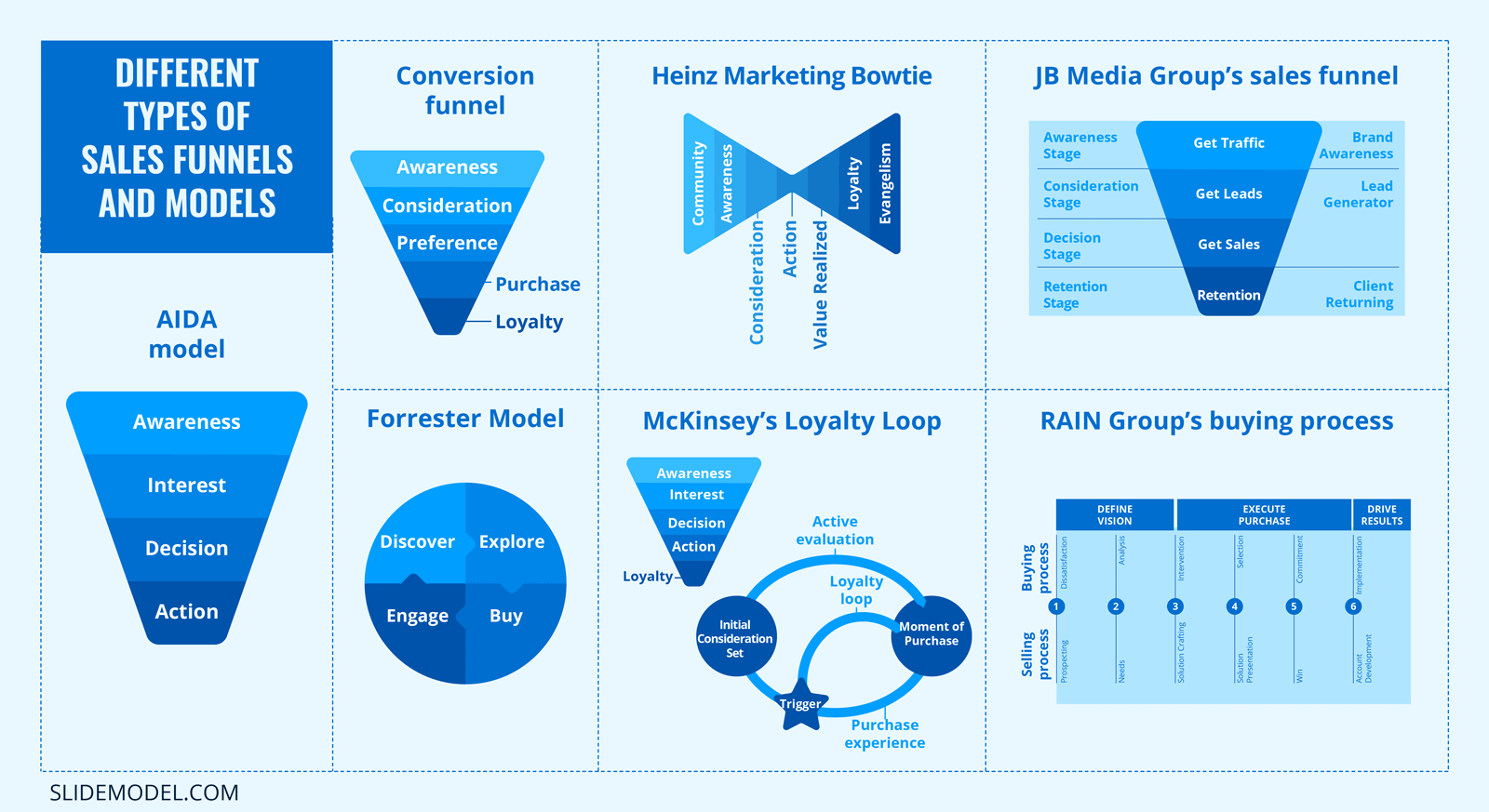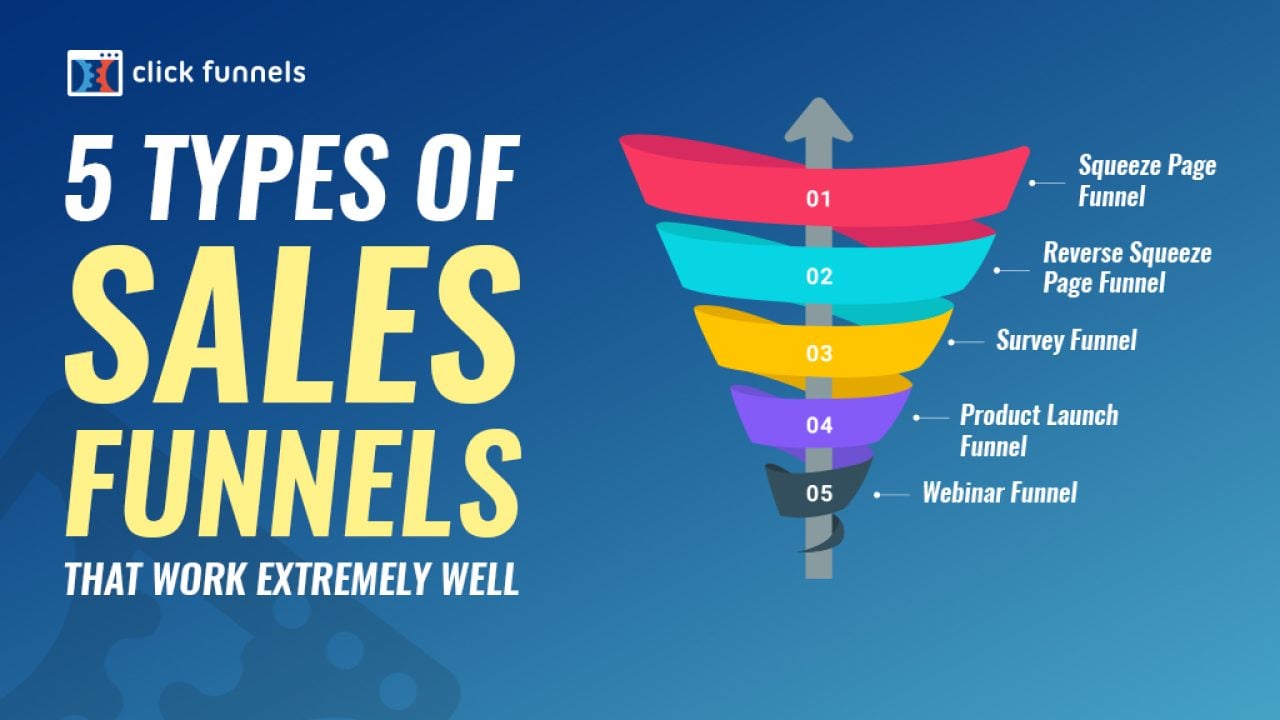
Understanding Different Sales Funnel Types For Your Business
In a bustling market brimming with savvy consumers and fierce competition, understanding the intricate dance of leading a potential customer from being aware of your product to making the leap to purchase is crucial. This transformative journey is encapsulated in what is commonly known as a sales funnel. And certainly, not all sales funnels are created equal. Each business might find a different type of sales funnel aligns beautifully with its unique goals, products, and audience. Let’s unpack these varieties to ensure you select the most fitting for your business.
What Is A Sales Funnel?
Think of a sales funnel as a roadmap that charts the route a customer takes from the moment they learn about your business to the point at which they make a purchase. It’s called a funnel because, like its kitchen counterpart, it starts wide—capturing a broad audience—and narrows down as potential customers waver, reconsider, or walk away, leaving only the most interested parties as actual buyers.
Why Does Your Funnel Type Matter?
The character of your sales funnel can make or break your business. Just like a tailor selecting the perfect fabric for a bespoke suit, matching the right type of funnel to your business can fine-tune your marketing efforts, cut down on wasted resources, and increase your conversion rates. Let’s explore the different types of sales funnels and their uses.
Types of Sales Funnels
The AIDA Model
This historical model has withstood the test of time. AIDA stands for Awareness, Interest, Desire, and Action. It’s a foundational funnel form, excellent for those just starting. It suits almost any business, as it’s a universal concept. You capture attention, build interest, cultivate a desire for your products or services, and inspire action. It’s the classic customer journey funnel and a good starting point for understanding how sales funnels work.
The Lead Magnet Funnel
Imagine enticing customers with a delightful magnet—a free ebook, a discount code, or an exclusive video. This funnel starts by offering something valuable for free. And why free? It’s the bait on the hook. Once you have their attention—and their contact information—you can follow up with nurturing emails or targeted content to guide them down the funnel to the purchase stage.
The Webinar Funnel
If your business thrives on personal connection, education, or demonstrations, the webinar funnel might be your jackpot. This approach involves inviting potential customers to a free or paid online seminar. During this event, you showcase your expertise, build credibility, and present an irresistible offer. It’s interactive, engaging, and can convert attendees into customers by the end of the session.
The Launch Funnel
Got a new product or service on the horizon? The launch funnel is all about building anticipation. Through a series of communications, you reveal snippets of information, share stories, testimonials, or sneak peeks, and get your audience’s excitement peaking. Then, you time your offer for when they are most eager, and voilà!—you potentially enjoy a wave of initial sales during the launch.
The Challenge Funnel
Rally your customers around a common goal or problem with a challenge funnel. Let’s say you’re in the fitness industry. You could host a 30-day fitness challenge that participants sign up for. Their commitment deepens their engagement with your brand, and you can offer additional resources, coaching, or products to help them achieve their challenge goals, guiding them toward a purchase.
The High-Ticket Sales Funnel
When you’re dealing with expensive products or services that require a hefty investment, the high-ticket sales funnel is your friend. Its sophisticated structure involves nurturing high-level leads through personalized communication, one-on-one calls, and premium content. It’s less about quantity and more about the quality of leads and building a relationship that justifies the high cost.
Choosing the Right Funnel for Your Business
Deciding on the perfect sales funnel type is not a one-size-fits-all scenario. Here are a few considerations to help you make the best choice:
- Know Your Audience: Understand your customer’s journey, what they value, how they prefer to interact with your brand, and what incentives will motivate them.
- Analyze Your Product or Service: Some funnels work better for physical products, while others are more suited to services or digital offerings. Match your funnel to the nature of your product.
- Consider Your Goals: Are you trying to establish expertise, launch a new product, or just collect leads? Different goals require different funnels.
- Content Creation Capability: If you have the resources to create engaging content regularly, a content-rich funnel like a webinar or launch funnel may be more suitable.
- Budget: Some funnels require a substantial investment, while others are more budget-friendly. Ensure the funnel aligns with your marketing budget.
Technology and Tools
You don’t have to go at it alone. Various tools can help you build, manage, and optimize your sales funnel, from email autoresponders to webinar platforms and analytics software. Many Customer Relationship Management (CRM) systems also offer funnel management features that keep everything organized and measure performance effectively.
Optimizing Your Sales Funnel
Setting up your funnel is just the beginning. To truly succeed, you need to test and tweak your funnel continuously. Track how leads move through each stage, test different messages or offers, and use customer feedback to refine the experience.
Final Thoughts

Understanding the different types of sales funnels and implementing the most suitable one can help turn browsers into buyers and one-time customers into loyal fans. Don’t be afraid to experiment and evolve your strategy as your business grows. After all, the right sales funnel might just be the propelling force that launches your sales to new heights.